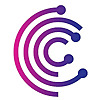ARTICLE AD BOX
Vitalik Buterin, the co-founder of Ethereum, has introduced a novel tool called “Freedom Tool.”
Developed by Rarimo in Kyiv, this technology empowers Russian citizens to vote online anonymously using zero-knowledge proof technology. It ensures security and privacy without compromising the visibility of the voting outcomes.
Tech innovations in authoritarian states
On a recent podcast, notable hosts Ryan Sean Adams and David Hoffman delved into the strategies employed by authoritarian regimes like China and Russia. They highlighted these countries’ substantial investments in spreading their narratives as opposed to the more liberal approach of the United States. This discussion extended to a broader analysis by economists Noah Smith and Vitalik Buterin, considering the competitive edges of authoritarian governments over liberal democracies.
Smith referenced the theory proposed by Francis Fukuyama in “The End of History,” which once posited liberal democracy as the ultimate form of government. However, the ascent of China, perceived weaknesses in the U.S., and the transformative impact of the internet have prompted a reevaluation of this thesis. According to Smith, while liberal democracies excel at collecting information through various open channels like markets and public debates, the internet’s capacity for centralizing data might diminish this advantage.
Data centralization and governance challenges
The internet’s role in centralizing data could streamline how authoritarian states monitor public sentiments, allocate resources efficiently, and swiftly tackle unrest—points illustrated by China’s prompt responses to the 2022 “white paper protests.” However, this also presents challenges in liberal democracies, where the spread of disinformation complicates governance and diverts politicians’ attention from policy-making to countering false narratives and fundraising.
Discussing the monopolistic tendencies in information control, Buterin likened the current scenario to Thomas Hobbes’ “war of all against all,” where he suggested that authoritarian regimes could achieve stable outcomes through centralized narrative control. He critiqued the lower quality of discourse observed on large platforms like Twitter, contrasting it with more constructive conversations on smaller platforms and private group chats.
Technological impacts on democratic societies
Smith drew parallels between the internet and the printing press, noting how earlier technologies initially reduced information costs and fostered liberalism and societal fragmentation, benefiting liberal democracies. However, he argued that the current dynamics are different, as the benefits of reduced information costs have plateaued while the expenses of disinformation have surged.
Buterin posited that centralized systems might be more adept at extraction rather than production, potentially giving authoritarian regimes an edge in zero-sum situations. He emphasized that evaluating success solely by economic metrics might overlook the broader implications for human welfare. For people living under authoritarian regimes, blockchain could provide a crucial platform for secure and private communication about their political conditions, far beyond mere economic transactions.
The post Vitalik Buterin Launches New Tool for Anonymous Online Voting first appeared on Coinfea.
.png)
 4 months ago
2
4 months ago
2








 English (US)
English (US)